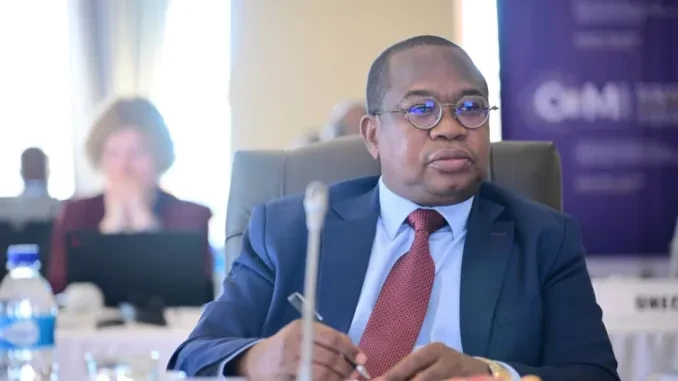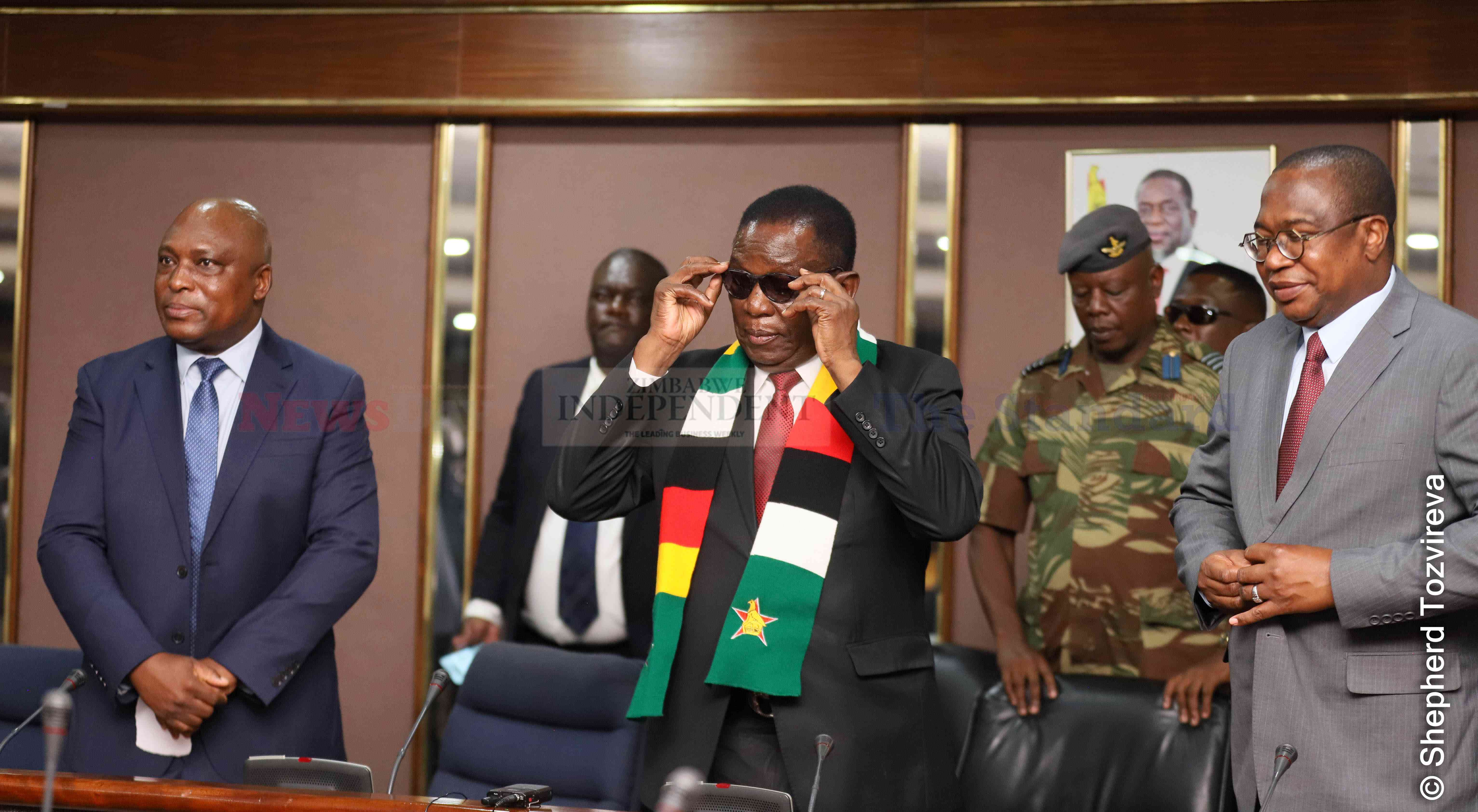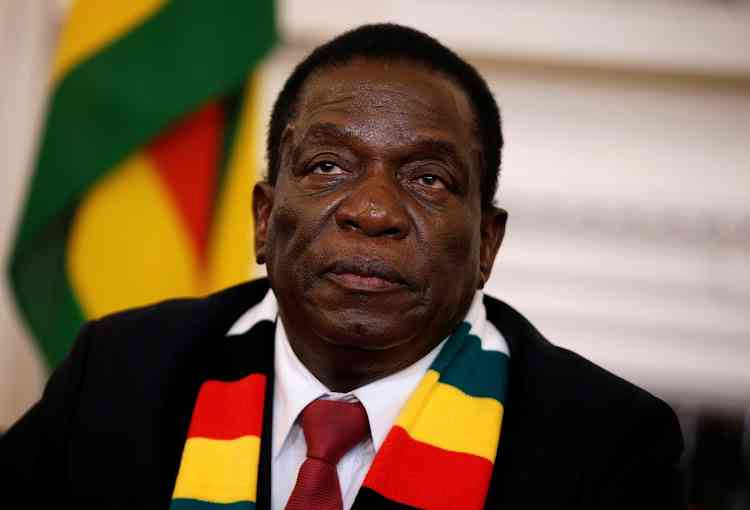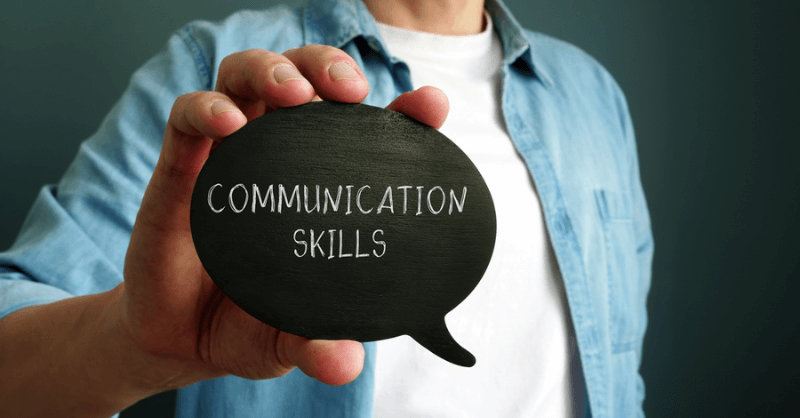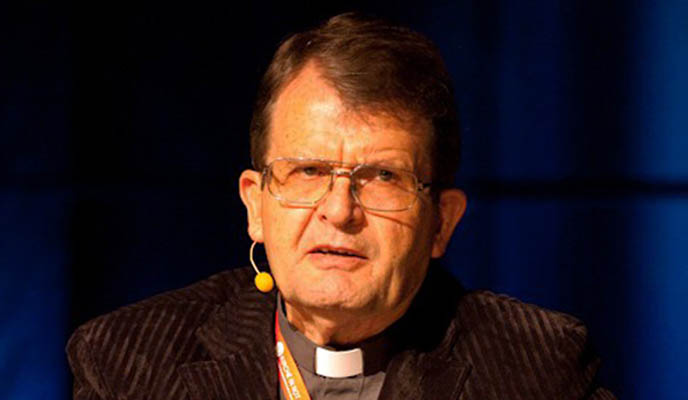
VENDORS and street traders are harassed by the forces of law and order. They are beaten, have their merchandise confiscated or destroyed. Why?
Guest column: Fr Oskar Wermter sj
Because street vending is illegal, the law forbids it. There is also the cholera epidemic. Selling cooked food and vegetables is unhygienic. It may help spread diseases like cholera and typhoid.
Why do people take to vending? Police do not ask questions; they just enforce the law.
In the minds of many law enforcers, the law is there for its own sake. No “reason” needed.
If you question the law, you are a rebel, you disturb public order.
But is not the law put in its place for the sake of the people? The Constitution upholds the dignity of the person, of men and women and young people. People must not be sacrificed for the State and its institutions. There are moments when the law legitimately is not observed.
Why are people trading on the streets? Because there is a drastic shortage of jobs. People are unemployed. Vending is their only means of survival. There is no employment because the economy has no time and place for workers.
- Chamisa under fire over US$120K donation
- Mavhunga puts DeMbare into Chibuku quarterfinals
- Pension funds bet on Cabora Bassa oilfields
- Councils defy govt fire tender directive
Keep Reading
There is no alternative to vending for most of them. Economic structures force people into such illegal activities: they need to survive and keep their families alive. They have no choice.
Police think only of the law, never mind the consequences. Jesus said, the Sabbath is there for people, not the other way round.
The old Romans of 2000 years ago had a Latin saying: “Fiat Justitia et Pereat Mundus” (Justice must be done/ even if the world may perish). The law and our duty to keep it become an absolute law that does not consider people and their needs. In this country, at least seven persons were sacrificed for the State during the unrests of August 1 this year. The presumed need to absolutely uphold the power and authority of the State comes first.
The Constitution celebrates human life as our greatest treasure. What comes first? State power or us, the people and citizens of this country? Those police officers, have they no conscience? Orders by police or the military do not dispense them from obedience to the moral law. A higher authority than a police commander has given us the commandment “You must not kill!”
Vendors break the law or disobey an order. They do so for the sake of the life of themselves and their families. The law should serve and protect us.
After World War II, when France was the victor Germany had to pay reparation: German coal was shipped to France. It was wintertime, and the people were dying of cold, having no heating. So the Archbishop of Cologne said in a word to his congregation: “Because it is a matter of life and death, you can take as much coal from the goods trains as you need.”
He was convinced that human life was more important than rules and regulations, people were more precious than the coal given to victorious France as reparation.
The vendors are our fellow citizens. They are our problem as a nation, as the Republic of Zimbabwe. “Republic” means “a matter of public concern”, an entity that is the concern of all of us. You cannot judge them, let alone condemn in a criminal law court. You have to look at the matter from different angles. It is our economy that lets so many people down who are trying to make a living. Why punish those who suffer because of this malfunctioning economy, anyhow? Why punish mothers who just do what all mothers do, putting “sadza” on the table?
This is a time for solidarity, not for singling out individuals for brutal punishment. Maybe our fellow citizens in the forces of law and order need a little crash course about human dignity and respect for human life.
But our concern must be with more than law and order, it must be with the well-being of even the lowest grade of workers, eg the parents who fight for the lives of their children.
The State has a legitimate interest in public health. That means they must try and prevent epidemics. They must check on the quality of the people’s drinking water, and supply water where there is none at present. Water is for all, even those who cannot pay. It must not be commercialised and become part of our market economy.
The market has a role to play. That is where rural producers meet their urban customers. Chasing the producers of tomatoes away won’t do. We say to State agents: “Make water available and you can demand that the rules of public hygiene be observed.”
What is the point of driving vendors from the streets? Provide them with public toilets and tell them how to handle food, cooked or uncooked, wash their hands before touching the tomatoes which they offer for sale.
And, even more importantly, rebuild the economy and increase its productivity.
There are people who constitute a much bigger nuisance and cause more harm than tomato sellers. These people are prosperous. They have money, US dollars which they spirit out of the country to foreign banks through private channels. There is more money leaving the country this way than is coming into the country for investment, private or public (eg for infrastructure, water, public health, roads).
There are heated discussions between teachers and parents nowadays about beating mischievous pupils. It should be banned, many educationists say. May I suggest that we ban the beating of parents as well. The task of the police is to protect life, not to make it unbearable.
“The law must be kept, even at the cost of human lives”, is a free translation of that Roman saying: “Fiat justitia/pereat mundus.” That would be a very inhuman principle.
But it must be the aim of a new country to overcome past colonial, inhuman structures and ideologies and humanise it starting at the very bottom of the pile and honour the citizens as nation builders, not pour contempt on them as if they were the enemies of the State.
Father Oskar Wermter writes in his personal capacity

